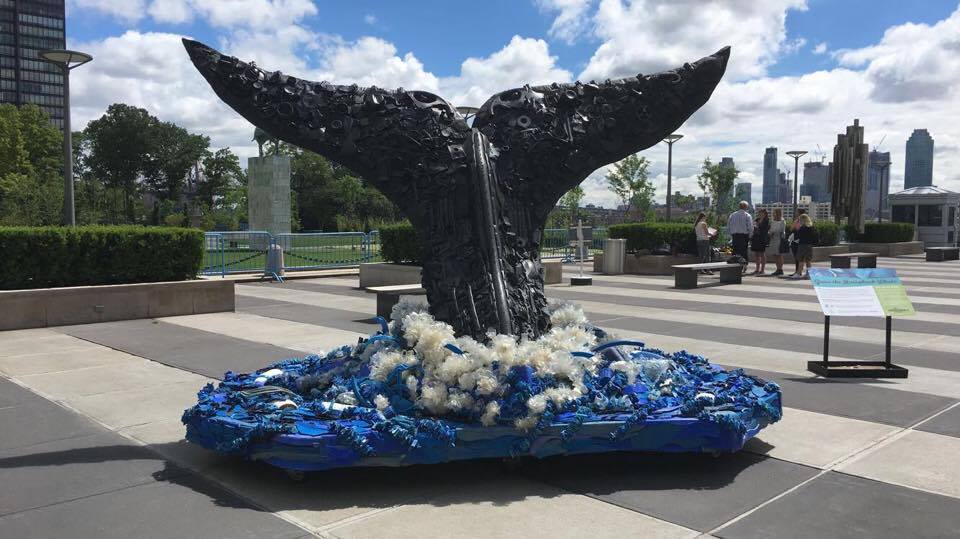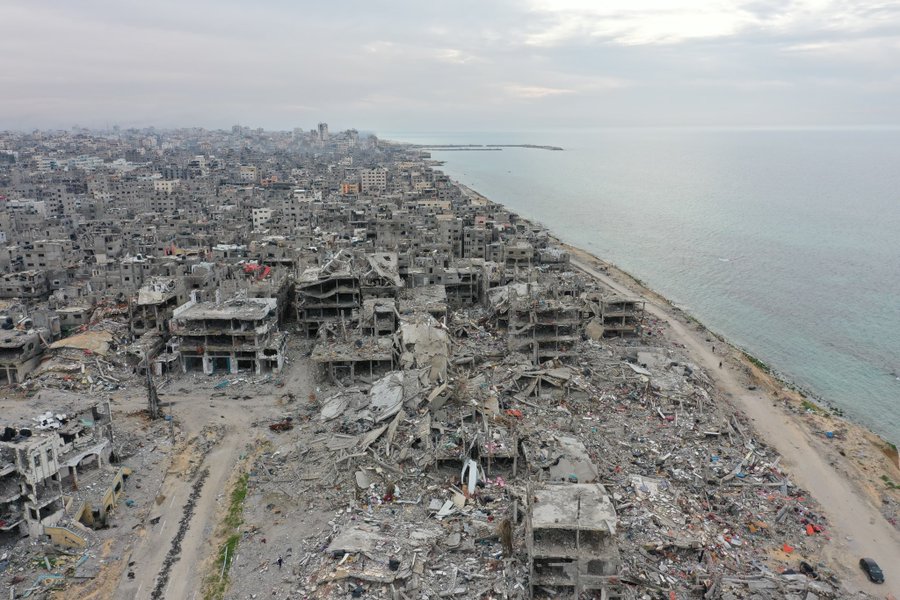My Experience at the UN Ocean Conference
Madhu Garimella is the International Food Group Director from the International Student Environment Coalition. She works with food related issues like food sustainability and food scarcity.
I was selected as a representative of the United Nations Association-USA GenUN youth network to attend the UN Ocean Conference, focusing on Sustainable Development Goal (SDG) 14 “Life Below Water”. The opening remarks of the conference reinforced that the ocean knows no countries and knows no boundaries making it the responsibility of all mankind. I think this is such a true statement because the ocean contributes to so much of life and connects everyone in so many ways. It provides half of the world’s oxygen!
The ocean also connects to the culture of many island-based communities. The first day of the conference, I was able to meet people from New Zealand who represented various indigenous people of that area. I learned so much from them! They showed me that the ocean contributes so much to their way of life and how a return to traditional sustainable practices will be incredibly impactful in those areas. My first day opened my eyes to the importance of the ocean and the amount of culture that is based in it.


One of my greatest takeaways from the conference is that in order to achieve SDG 14 there should be more interest and investment in the advocacy of indigenous peoples. Meeting after meeting talked of problems and what has already been done, but not what should be done in the future and not what solutions can actually be implemented on a global level. Yet, so many of those answers lie with the indigenous people as they have been the ones to integrate the ocean into every aspect of their lives and sustainably use the natural resources around them while contributing less than 0.2% of the world’s heating according to the United Nations Permanent Forum on Indigenous Issues. There should be greater emphasis on the indigenous people as they are the ones that have solutions that can be implemented as they have been used for hundreds if not thousands of years.

There needs to be more action by every human on this planet. That is the only way anything will actually be accomplished.
You – as an individual – can take steps to protect the ocean: use a reusable water bottle, go to the beach and pick up some plastic, turn off your lights when you leave the house, the list goes on and on. Look here for more suggestions and stories about living sustainably. If every person on earth were to take action, there would be more accomplished than what any government has done or could do. The earth and oceans is in our hands and is our responsibility.

The ocean is a resource. The ocean is a resource. The ocean is a resource. That is the sentence that I have heard over and over again. We should not just care about the ocean simply because it is a resource that is depleting. The ocean is so much more than that. It is the way of life for so many people. It is part of a greater culture that some of us will never know. That is one the biggest lessons I have learned this past week at the UN Ocean Conference. There needs to be a paradigm shift. The ocean is not just a resource, but a way of life for people all around the world from the Caribbean to the Pacific Rim. I encourage each and every person to learn to recognize the value of cultures different than their own. I hope we can realize that the actions we are making as the developed nations are affecting people in ways that impact their culture and their way of life. We can make a change by listening to the indigenous people and implementing their sustainable solutions to help the ocean. This is best way to implement and succeed in ocean conservation.




